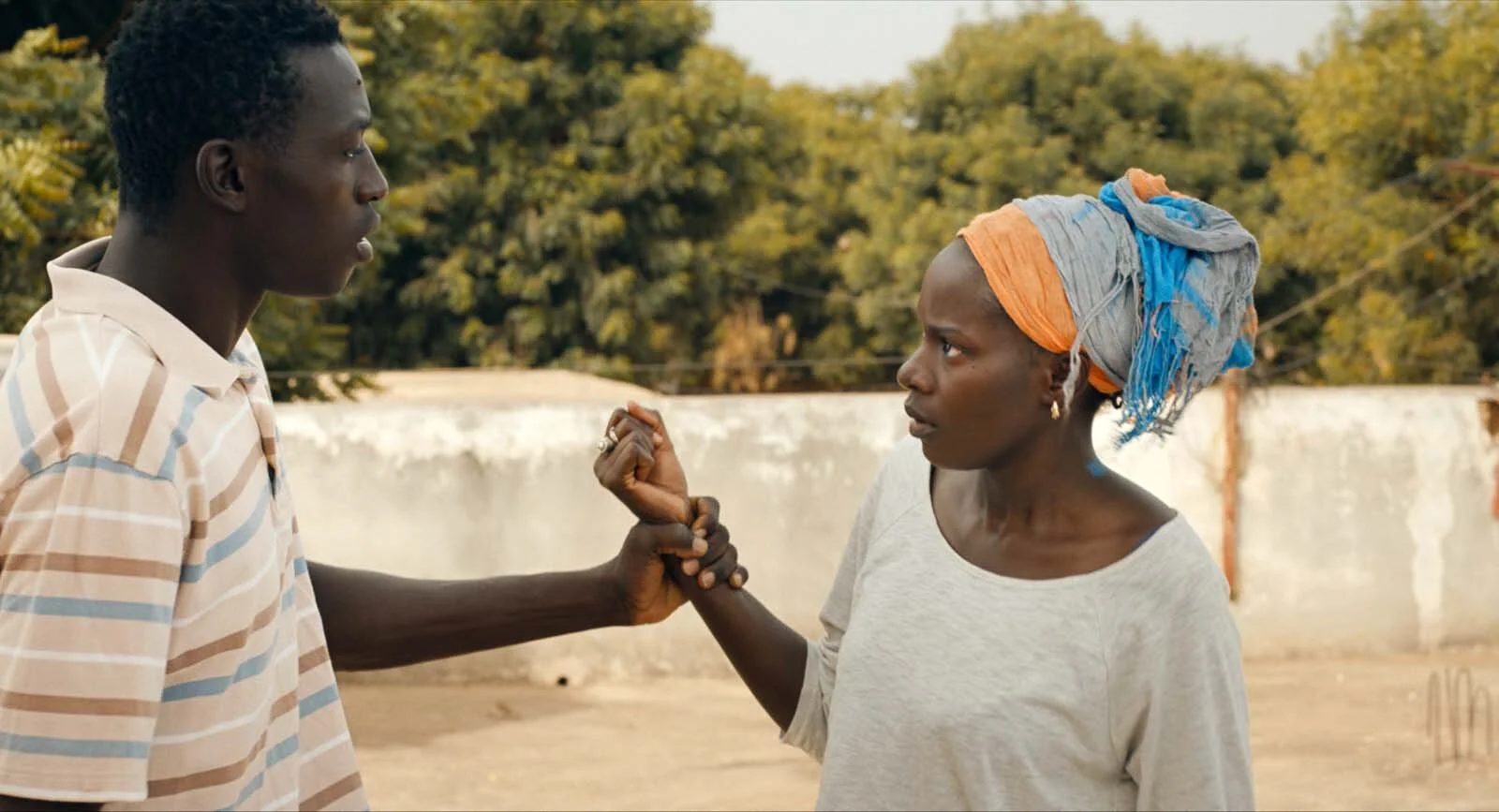Amin
A tale of two worlds, France and Senegal.
Moustapha Mbengue and Mareme N'Diaye
Philippe Faucon, a French writer/director better known there than here, was actually born in Morocco and spent his early years in that country and in Algeria. That background may have influenced him in making Amin although in painting a contrast between life on the African continent and the experiences of those who come to France in search of work the country it chooses to feature is Senegal. The titular figure, Amin (Moustapha Mbengue), has come to Paris where, by doing construction work, he can earn enough to support his family back home. His wife is Aïcha (Mareme N'Diaye) and they have three children, aged ten, twelve and fifteen. When Amin makes a rare visit, we follow him and thus meet other family members. These scenes may be colourful as photographed by Laurent Fenart, but the limited prospects in Senegal are very apparent. We can understand why Amin is just one of many who feel that, despite the fact that it will separate them from their families for a long time, working abroad is the only option.
In Faucon's film, Amin may be the key figure whose life illustrates this situation, but by touching also on the problems of two friends of his, Abdelaziz (Noureddine Benallouche) and Ousmane (Moustapha Naham), Amin asks to be seen as a work recording conditions of economic necessity that are widespread and lead to many children growing up without seeing their fathers. Furthermore, the long absences can easily undermine the stability of marriages and that is what happens here. While doing work at the home of the unhappy Gabrielle (Emmanuelle Devos), Amin enters into an affair with her. Although it is viewed uneasily by her daughter, Célia (Fantine Harduin), this relationship proves consolatory to both of them (Gabrielle is suffering from the aggressive behaviour of Célia's father, Hervé, played by Samuel Churin).
The strongest aspect of Faucon's sympathetic film is its sense of reality. The start of the affair between Amin and Gabrielle may seem to start too abruptly to be entirely persuasive, but in all other respects the film has an admirably unforced air of authenticity. This is enhanced by the performances of the entire cast (Devos fits in admirably in capturing the tone of her less familiar fellow players). Non-judgmental in its approach, Amin makes us understand how living in two worlds can prove a real threat to family life. But in some respects the film is less telling. The weakness stems from Faucon fielding rather too many characters for comfort (identifying all the members of Amin's family including two brothers can be difficult) and the subsidiary elements - not least the sub-plot involving Abdelaziz - sometimes disappear from sight for long periods only to reappear suddenly. For once one feels that one is watching a film which would have been improved by being longer thus giving time for details that would establish the minor characters more fully. But, despite the drawbacks that one finds here, Amin is an involving piece that offers much to which the viewer can relate. It is unshowy but unquestionably heartfelt.
MANSEL STIMPSON
Cast: Emmanuelle Devos, Moustapha Mbengue, Mareme N'Diaye, Noureddine Benallouche, Moustapha Naham, Fantine Harduin, Christine Dir, Samuel Churin, Alioune Sow, Mariama Sené, Ndjira Dieye.
Dir Philippe Faucon, Pro Philippe Faucon and Yasmina Nini-Faucon, Screenplay Philippe Faucon, Mustapha Kharmoudi and Yasmina Nini-Faucon, from her idea, Ph Laurent Fenart, Pro Des Manuel Swieton, Ed Mathilde Grosjean and Sophie Mandonnet, Music Amkin Bouhafa, Costumes Charlotte David.
Istiqial Films/Arte France Cinéma/NJJ Entertainment/Tanit Films-New Wave Films.
91 mins. France. 2018. Rel: 21 June 2019. Cert. 18.


